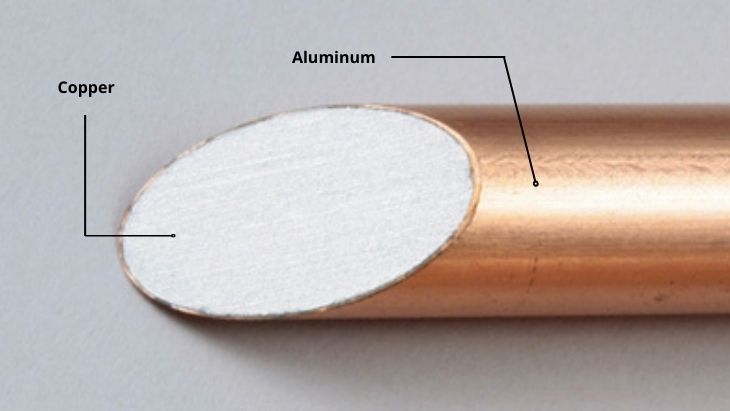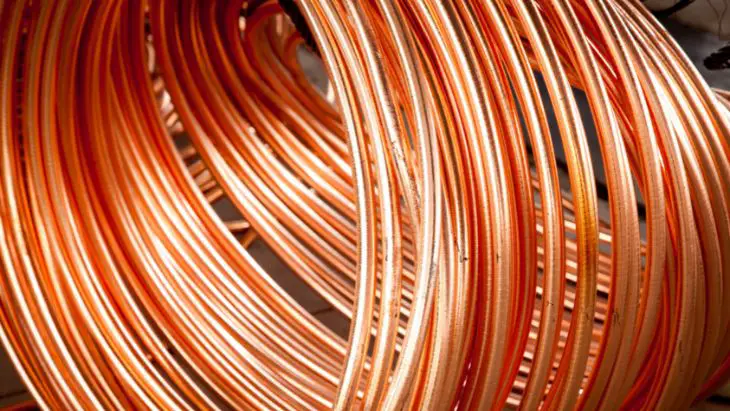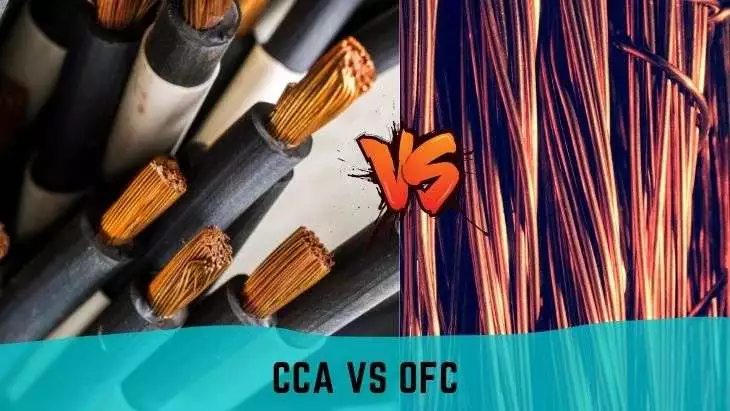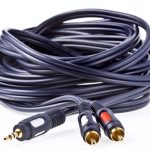The kind of speaker wire you use when installing a car subwoofer, amplifier, or car speakers largely determines the kind of sound quality you’ll have from your car audio system. There’re several types of speaker wire that you may use. However, they differ significantly in terms of efficiency and reliability. The main types of speaker wire that stand out are copper-clad aluminum (CCA) and oxygen-free copper (OFC). In this article, we’ll compare CCA vs OFC in detail.
Comparison Table
| Variable | CCA | OFC |
| Conductivity | Less efficient | More efficient |
| Oxidation | More prone to oxidation | Less prone to oxidation |
| Weight | Lighter | Heavier |
| Durability | Less durable | More durable |
| Handling heat | More likelihood of overheating | Less likelihood of overheating |
| Cost | More affordable | More expensive |
Copper-Clad Aluminum

Copper-clad aluminum, abbreviated as CCA, refers to aluminum wire coated in a thin layer of copper. When you look at a CCA speaker wire, you may assume that you’re dealing with regular copper wire. Although it looks like copper wire, CCA is very different from copper wire.
But why coat aluminum wire with copper? Essentially, aluminum conducts electricity, but less efficiently than copper. Coating it with copper increases its conductivity. However, when comparing CCA with OFC speaker wire of the same gauge, CCA conducts approximately 60 perfect of the current that OFC carries. What does this mean? Basically, it means that conducting a similar amount of current will need you to use thicker CCA wire than OFC.
Unfortunately, CCA is prone to oxidation. Oxidation reduces its conductivity further. If oxidized, it won’t deliver the amount of power that your amplifier or speakers need. The reduced efficiency and increased resistance make the wire overheat, which can damage your amp or speakers.
Luckily, CCA is largely affordable. Thus, it’s a great choice for an audiophile who is working with a tight budget. However, you may have to replace it sooner. Thus, it may end up costing you more in the long run.
Advantages of CCA
- Lower price range
- Lighter than OFC
Disadvantages of CCA
- Prone to corrosion
- Less durable
- Lower efficiency and conductivity
- More prone to overheating
Oxygen-Free Copper

Oxygen-free copper, abbreviated as OFC, is another popular type of speaker wire. Essentially, OFC is a type of copper that has undergone special refining using sulfuric acid and copper sulfate to reduce its oxygen level to less than 1 percent. The main benefit of this refining process is that it reduces its likelihood of corroding due to low oxygen content. Thus, it’s more durable than standard copper.
OFC is a better conductor than CCA. It can efficiently conduct a lot of current, especially for power-hungry amplifiers. A lot of current is needed for smooth operation of a car sound system, especially at its peak performance. Thus, OFC makes it possible to achieve highly efficient and reliable power supply. Also, it is less likely to overheat than CCA as long as you’re using the right wire gauge.
The high-efficiency level of OFC minimizes the stress on the car electric system, especially on the alternator. Its corrosion resistance makes it less resistant to electric conductivity. Sometimes, OFC is coated with a thin layer of silver or tin to enhance its resistance against elements that cause corrosion, especially for marine applications.
However, OFC is more expensive than CCA. Thus, it is not a favorable choice for an audiophile working with a very tight budget. Regardless, it will make you more savings in the long run due to the reduced chances of demanding a replacement sooner.
Advantages of OFC
- Less prone to corrosion
- High efficiency and conductivity
- Reduced likelihood of overheating
- More durable
Disadvantages of OFC
- Higher price range
- A little heavier than CCA
Final Thoughts- Which is better between CCA vs OFC?
When comparing CCA and OFC, OFC is better suited for wiring a car audio system. OFC proves to be a better electric conductor, is less prone to corrosion, and is less prone to overheating. Although CCA is a more affordable choice, in the long run, it will cost you more due to frequent replacement. Thus, OFC is a better choice despite its higher cost of installation. If you must use CCA over OFC, consider buying a larger gauge for better conductivity and efficiency.
Michael Evanchuk is a San Francisco-based sound engineer with 20 years’ experience installing, troubleshooting, and repairing commercial, automotive, and household sound equipment. Evanchuk owns an auto stereo center, where he offers highly competitive car audio installation and repair services. He has written dozens of articles on different sound engineering topics, all of which have been published in leading journals, blogs, and websites.





